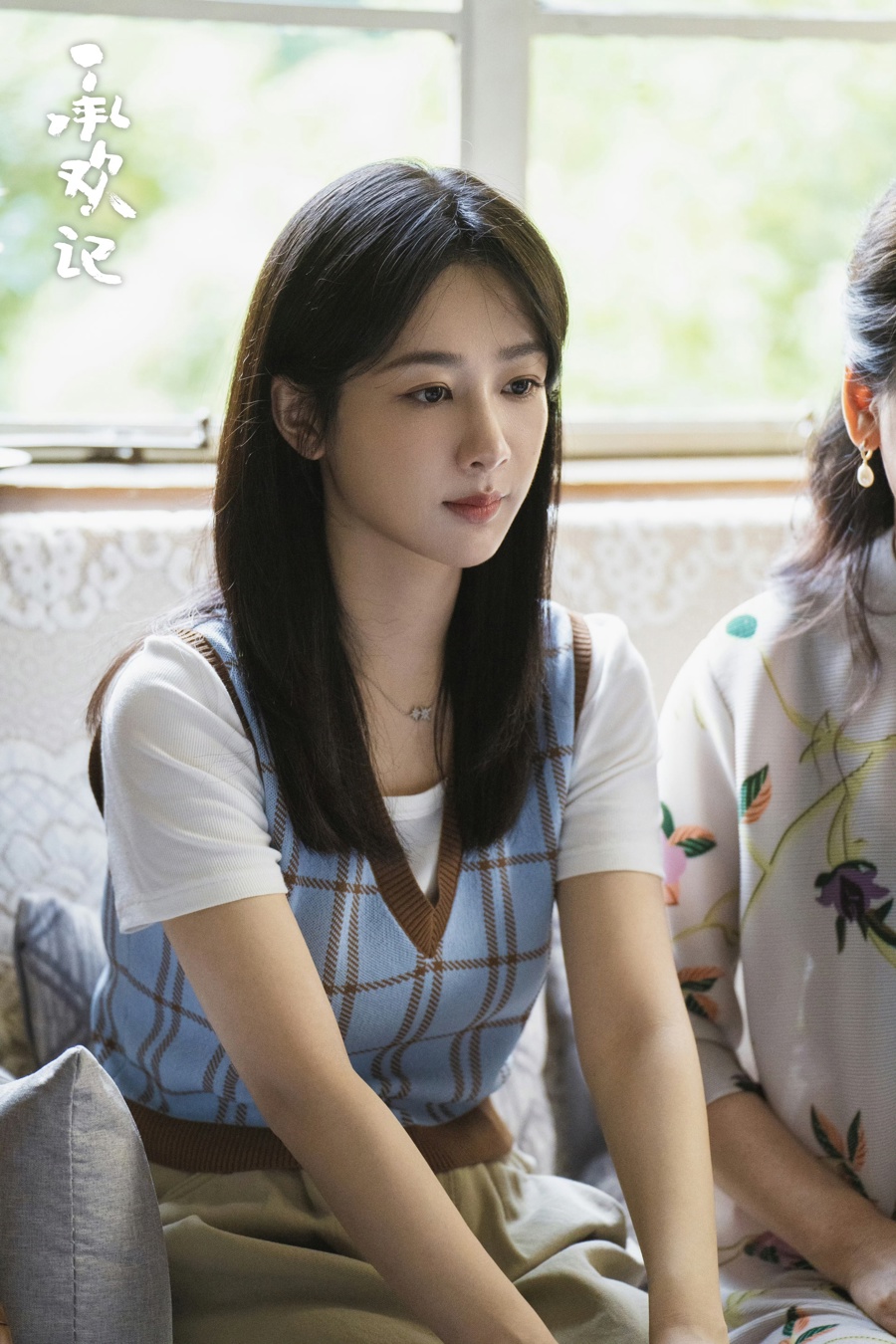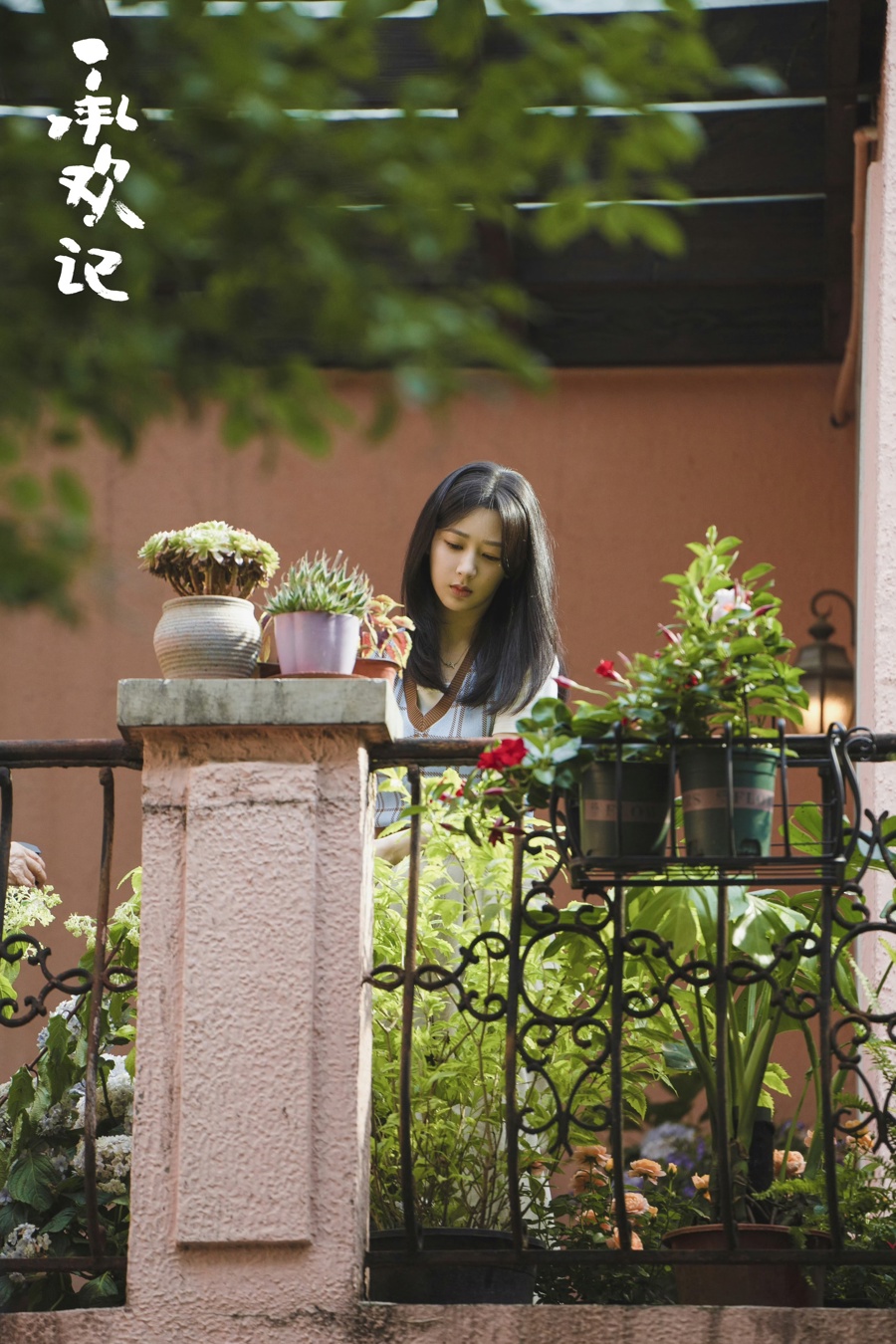Interview with Yang Zi: Through "Mai Chenghuan", I understand the identity of "daughter" better
The first time I met Yang Zi was in the family sitcom "Family with Children" that premiered in 2005. "Xiaoxue" with a high ponytail left a deep impression on the audience in front of the screen because of her clever and clever image. Recently, "Chenghuan" went LIVE on CCTV’s eight prime sets, and Yang Zi starred in the play as the daughter of the family in Shanghai. From "Xiaoxue" to "Mai Chenghuan", has Yang Zi changed?
 stills
stills
"Xiaoxue and Mai Chenghuan are indeed different. The overall atmosphere of’Family with Children ‘is warm and happy, and Xiaoxue’s childhood is carefree, so she shows more of a lively and outgoing, innocent and quirky side." In an exclusive interview with Jiefang Daily Shangguan News, Yang Zi’s chatterbox was opened from the difference between the two "daughters".
"As I grew up, I found that many families were not like this. Many girls and mothers would quarrel about various things in life, including jobs, marriages, and how girls should survive in this society. The more noisy they were, the more they didn’t understand each other, and the less they knew what the problem was. And because of the constant blood relationship, they could only cold war, run away, and avoid going home during the holidays. Mai Chenghuan was one of them."
"The Story of Chenghuan" begins with the Mai family’s "family model" – a strong mother, a muddy father, and a obedient daughter and younger brother. He Saifei’s mother, Liu Wanyu, is used to controlling everything, including her daughter’s love and marital status. Mai Chenghuan, who has been working and has been an adult for a long time, even the details of his relationship have to be traced by his mother. Like many ordinary families in China, the Mai family has a warm and close parent-child relationship, but there are also difficult contradictions between the two generations due to differences in ideas.
 stills
stills
"Chenghuan’s family is not particularly wealthy in Shanghai. The family of four is crowded in a small house in the alley, and the house leaks from time to time. The younger brother who goes to college doesn’t even have his own room, so he can only sleep on the camp bed on the balcony. Mom and Dad look to demolition to change their lives. Although the conditions are poor, they are better than warmth and intimacy." In such a family environment, Yang Zi said, Liu Wanyu is a typical "Chinese mother". In the early years, she married her father in the alley for staying in Shanghai, but she was actually dissatisfied with the stretched living conditions. "In the long family life, my father’s personality is relatively soft, which makes my mother develop a hard-spoken, soft-hearted, strong, and all-inclusive character. She hopes that her daughter will not be like herself, and can marry better and suffer less."
This is the third time Yang Zi has worked with He Saifei. "I was quite excited to learn that Teacher He Saifei plays the mother. She takes her work very seriously and has a lot of life experience. Many of her on-site treatments can make the mother-daughter relationship more delicate and real." In life, Yang Zi said, He Saifei is also an interesting person. "He will chat with us, tell some small jokes, and recommend some good things that she often uses and is very practical. In this way, we become like a real mother and daughter. This gives me more and more inspiration to create together."
 stills
stills
On the one hand, Mak Chenghuan, who is about to turn 30, is still the pearl in the palm of his parents’ eyes that has not grown up. Even when she comes back from overtime, her father has to go to the alley to pick it up. On the other hand, she also faces the pressure of her parents to urge marriage, especially the disparity in economic conditions between her and her boyfriend Xin Jialiang, which buries the contradictions and conflicts between the two families. How Mak Chenghuan completes her self-growth in the play is the biggest test for Yang Zi, just like the fate of the characters implied by the name "Chenghuan". "She was named’Chenghuan ‘by her parents and hoped to be’under Chenghuan’s knees’, and the first 29 years of her life completely grew into what her parents expected. It was not until she was 30 years old that she began to understand the name again and learn how to’Chenghuan himself ‘and’please herself’." Yang Zi said that when she first got the script, M
In Yang Zi’s opinion, under the influence of her strong mother, Mai Chenghuan habitually compromised and dedicated to others in character. This is reflected not only in the family, but also in Mai Chenghuan’s attitude towards her boyfriend and colleagues. From helping her boyfriend with housework to bringing food to colleagues, she almost always chose to give. Compared with Xiaoxue’s carefree, Chenghuan has more helplessness of a real adult, and she lives without herself and is not so happy. "This story tells that Chenghuan does not know how to face this kind of discomfort and learns to be self-consistent." The Book of Chenghuan "made me have a deeper understanding and thinking about the identity of’daughter ‘."
 stills
stills
In the latest plot, a monologue by Mai Chenghuan was scanned on the Internet. The Mai family discussed marriage with the Xin family, but the Xin family, who felt that they were well-off, did not give the Mai family’s parents the respect they deserved. In the face of the difficulties of the Xin family, Mai Chenghuan, played by Yang Zi, is generous, reasonable, and shows his attitude neither humble nor overbearing. In this scene, Mai Chenghuan is growing up, and the theme of growth also runs through "Chenghuan". Including the later period when Mai Chenghuan’s mother tricked her into attending the engagement party, she finally faced the conflict with her mother, which meant a change in role.
"Under the influence of the family, Cheng Huan became a obedient post-it note girl, doing everything according to her mother’s arrangement, trying to live the way her mother hoped, enduring everything, enduring it, enduring it, and enduring it again. When this strong love gradually turned into unbridled control and bondage, Cheng Huan finally longed to rebel once, to break out of the previous obedient mode, try to establish her own boundaries with her mother, and change and live her life according to her own wishes. The plot shows this process of desensitization." Yang Zi said.
For Ms. Yang, the most interesting aspect of the family portrait drama is its light-hearted and humorous approach to a realistic topic – how a mother who is used to self-sacrifice and a daughter who is good at guilt and compromise should get along. "I would be curious about how Chenghuan, in such a Chinese mother-daughter relationship, would choose to resist, to break through this strong love, and how to find a balance with her mother and achieve self-growth."
 stills
stills
Most of the scenes in "Cheng Huan" are set in Shanghai. The Bund, Huangpu River, old bungalows, alleys, double-decker buses and other scenes are all familiar to Shanghai audiences. This shooting also made Beijing-born Yang Zi more familiar with the life in Shanghai’s alleys.
In order to get close to the character, she specially went to observe the neighborhood atmosphere and life atmosphere in Shanghai Lane, and also learned the Shanghai language from the seniors in Shanghai, imitating the tone and intonation of Shanghainese people. "Everyone will also teach me a lot of localized details, such as the way the play repeats words to call’Dad ‘and’Mom’, these experiences are very fresh."
For Yang Zi, the most memorable part of the whole filming process was not the heavy scenes, but a relatively flat family scene. "The plot is that Cheng Huan is listening to his parents, and the conversation between the family members is also very ordinary and happy. After listening to the plot, I can leave. But at that moment, I found that I couldn’t walk anymore, and I wanted to cry for no reason. It seems that I have a more complicated understanding of human nature. As people grow up, there will be more and more sour and helpless, but because the responsibility on my shoulders is getting heavier and heavier, I can’t easily vent my emotions."
The feeling is precious, she said, "and I remember it so well that I hope I can use it to further enrich the performance."